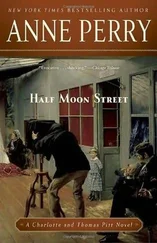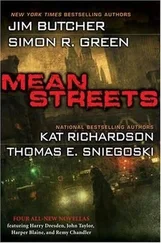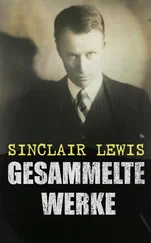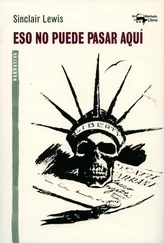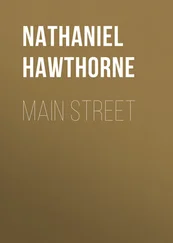Sinclair Lewis - Main Street
Здесь есть возможность читать онлайн «Sinclair Lewis - Main Street» — ознакомительный отрывок электронной книги совершенно бесплатно, а после прочтения отрывка купить полную версию. В некоторых случаях можно слушать аудио, скачать через торрент в формате fb2 и присутствует краткое содержание. Жанр: unrecognised, на английском языке. Описание произведения, (предисловие) а так же отзывы посетителей доступны на портале библиотеки ЛибКат.
- Название:Main Street
- Автор:
- Жанр:
- Год:неизвестен
- ISBN:нет данных
- Рейтинг книги:3 / 5. Голосов: 1
-
Избранное:Добавить в избранное
- Отзывы:
-
Ваша оценка:
- 60
- 1
- 2
- 3
- 4
- 5
Main Street: краткое содержание, описание и аннотация
Предлагаем к чтению аннотацию, описание, краткое содержание или предисловие (зависит от того, что написал сам автор книги «Main Street»). Если вы не нашли необходимую информацию о книге — напишите в комментариях, мы постараемся отыскать её.
libreka classics – These are classics of literary history, reissued and made available to a wide audience.
Immerse yourself in well-known and popular titles!
Main Street — читать онлайн ознакомительный отрывок
Ниже представлен текст книги, разбитый по страницам. Система сохранения места последней прочитанной страницы, позволяет с удобством читать онлайн бесплатно книгу «Main Street», без необходимости каждый раз заново искать на чём Вы остановились. Поставьте закладку, и сможете в любой момент перейти на страницу, на которой закончили чтение.
Интервал:
Закладка:
But she couldn't "hurt his feelings," she reflected. He liked the lordliness of giving largess.
She tried to reduce the frequency of begging by opening accounts and having the bills sent to him. She had found that staple groceries, sugar, flour, could be most cheaply purchased at Axel Egge's rustic general store. She said sweetly to Axel:
"I think I'd better open a charge account here."
"I don't do no business except for cash," grunted Axel.
She flared, "Do you know who I am?"
"Yuh, sure, I know. The doc is good for it. But that's yoost a rule I made. I make low prices. I do business for cash."
She stared at his red impassive face, and her fingers had the undignified desire to slap him, but her reason agreed with him. "You're quite right. You shouldn't break your rule for me."
Her rage had not been lost. It had been transferred to her husband. She wanted ten pounds of sugar in a hurry, but she had no money. She ran up the stairs to Kennicott's office. On the door was a sign advertising a headache cure and stating, "The doctor is out, back at——" Naturally, the blank space was not filled out. She stamped her foot. She ran down to the drug store—the doctor's club.
As she entered she heard Mrs. Dyer demanding, "Dave, I've got to have some money."
Carol saw that her husband was there, and two other men, all listening in amusement.
Dave Dyer snapped, "How much do you want? Dollar be enough?"
"No, it won't! I've got to get some underclothes for the kids."
"Why, good Lord, they got enough now to fill the closet so I couldn't find my hunting boots, last time I wanted them."
"I don't care. They're all in rags. You got to give me ten dollars——"
Carol perceived that Mrs. Dyer was accustomed to this indignity. She perceived that the men, particularly Dave, regarded it as an excellent jest. She waited—she knew what would come—it did. Dave yelped, "Where's that ten dollars I gave you last year?" and he looked to the other men to laugh. They laughed.
Cold and still, Carol walked up to Kennicott and commanded, "I want to see you upstairs."
"Why—something the matter?"
"Yes!"
He clumped after her, up the stairs, into his barren office. Before he could get out a query she stated:
"Yesterday, in front of a saloon, I heard a German farm-wife beg her husband for a quarter, to get a toy for the baby—and he refused. Just now I've heard Mrs. Dyer going through the same humiliation. And I—I'm in the same position! I have to beg you for money. Daily! I have just been informed that I couldn't have any sugar because I hadn't the money to pay for it!"
"Who said that? By God, I'll kill any——"
"Tut. It wasn't his fault. It was yours. And mine. I now humbly beg you to give me the money with which to buy meals for you to eat. And hereafter to remember it. The next time, I sha'n't beg. I shall simply starve. Do you understand? I can't go on being a slave——"
Her defiance, her enjoyment of the role, ran out. She was sobbing against his overcoat, "How can you shame me so?" and he was blubbering, "Dog-gone it, I meant to give you some, and I forgot it. I swear I won't again. By golly I won't!"
He pressed fifty dollars upon her, and after that he remembered to give her money regularly . . . sometimes.
Daily she determined, "But I must have a stated amount—be business-like. System. I must do something about it." And daily she didn't do anything about it.
III
Mrs. Bogart had, by the simpering viciousness of her comments on the new furniture, stirred Carol to economy. She spoke judiciously to Bea about left-overs. She read the cookbook again and, like a child with a picture-book, she studied the diagram of the beef which gallantly continues to browse though it is divided into cuts.
But she was a deliberate and joyous spendthrift in her preparations for her first party, the housewarming. She made lists on every envelope and laundry-slip in her desk. She sent orders to Minneapolis "fancy grocers." She pinned patterns and sewed. She was irritated when Kennicott was jocular about "these frightful big doings that are going on." She regarded the affair as an attack on Gopher Prairie's timidity in pleasure. "I'll make 'em lively, if nothing else. I'll make 'em stop regarding parties as committee-meetings."
Kennicott usually considered himself the master of the house. At his desire, she went hunting, which was his symbol of happiness, and she ordered porridge for breakfast, which was his symbol of morality. But when he came home on the afternoon before the housewarming he found himself a slave, an intruder, a blunderer. Carol wailed, "Fix the furnace so you won't have to touch it after supper. And for heaven's sake take that horrible old door-mat off the porch. And put on your nice brown and white shirt. Why did you come home so late? Would you mind hurrying? Here it is almost suppertime, and those fiends are just as likely as not to come at seven instead of eight. PLEASE hurry!"
She was as unreasonable as an amateur leading woman on a first night, and he was reduced to humility. When she came down to supper, when she stood in the doorway, he gasped. She was in a silver sheath, the calyx of a lily, her piled hair like black glass; she had the fragility and costliness of a Viennese goblet; and her eyes were intense. He was stirred to rise from the table and to hold the chair for her; and all through supper he ate his bread dry because he felt that she would think him common if he said "Will you hand me the butter?"
IV
She had reached the calmness of not caring whether her guests liked the party or not, and a state of satisfied suspense in regard to Bea's technique in serving, before Kennicott cried from the bay-window in the living-room, "Here comes somebody!" and Mr. and Mrs. Luke Dawson faltered in, at a quarter to eight. Then in a shy avalanche arrived the entire aristocracy of Gopher Prairie: all persons engaged in a profession, or earning more than twenty-five hundred dollars a year, or possessed of grandparents born in America.
Even while they were removing their overshoes they were peeping at the new decorations. Carol saw Dave Dyer secretively turn over the gold pillows to find a price-tag, and heard Mr. Julius Flickerbaugh, the attorney, gasp, "Well, I'll be switched," as he viewed the vermilion print hanging against the Japanese obi. She was amused. But her high spirits slackened as she beheld them form in dress parade, in a long, silent, uneasy circle clear round the living-room. She felt that she had been magically whisked back to her first party, at Sam Clark's.
"Have I got to lift them, like so many pigs of iron? I don't know that I can make them happy, but I'll make them hectic."
A silver flame in the darkling circle, she whirled around, drew them with her smile, and sang, "I want my party to be noisy and undignified! This is the christening of my house, and I want you to help me have a bad influence on it, so that it will be a giddy house. For me, won't you all join in an old-fashioned square dance? And Mr. Dyer will call."
She had a record on the phonograph; Dave Dyer was capering in the center of the floor, loose-jointed, lean, small, rusty headed, pointed of nose, clapping his hands and shouting, "Swing y' pardners—alamun lef!"
Even the millionaire Dawsons and Ezra Stowbody and "Professor" George Edwin Mott danced, looking only slightly foolish; and by rushing about the room and being coy and coaxing to all persons over forty-five, Carol got them into a waltz and a Virginia Reel. But when she left them to disenjoy themselves in their own way Harry Haydock put a one-step record on the phonograph, the younger people took the floor, and all the elders sneaked back to their chairs, with crystallized smiles which meant, "Don't believe I'll try this one myself, but I do enjoy watching the youngsters dance."
Читать дальшеИнтервал:
Закладка:
Похожие книги на «Main Street»
Представляем Вашему вниманию похожие книги на «Main Street» списком для выбора. Мы отобрали схожую по названию и смыслу литературу в надежде предоставить читателям больше вариантов отыскать новые, интересные, ещё непрочитанные произведения.
Обсуждение, отзывы о книге «Main Street» и просто собственные мнения читателей. Оставьте ваши комментарии, напишите, что Вы думаете о произведении, его смысле или главных героях. Укажите что конкретно понравилось, а что нет, и почему Вы так считаете.

